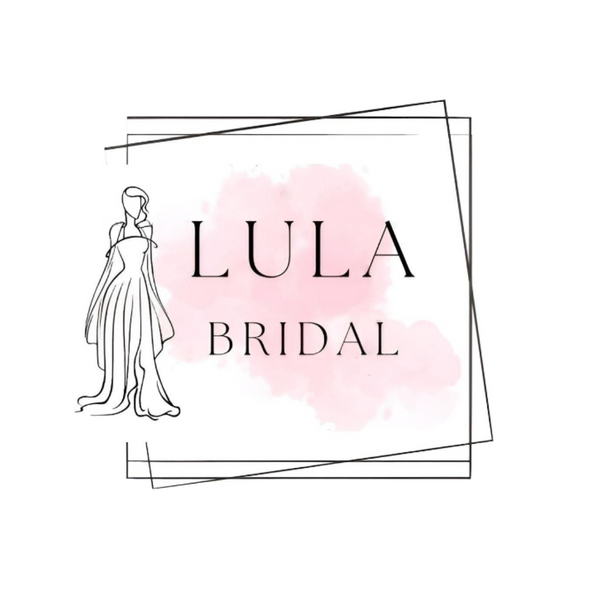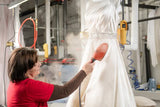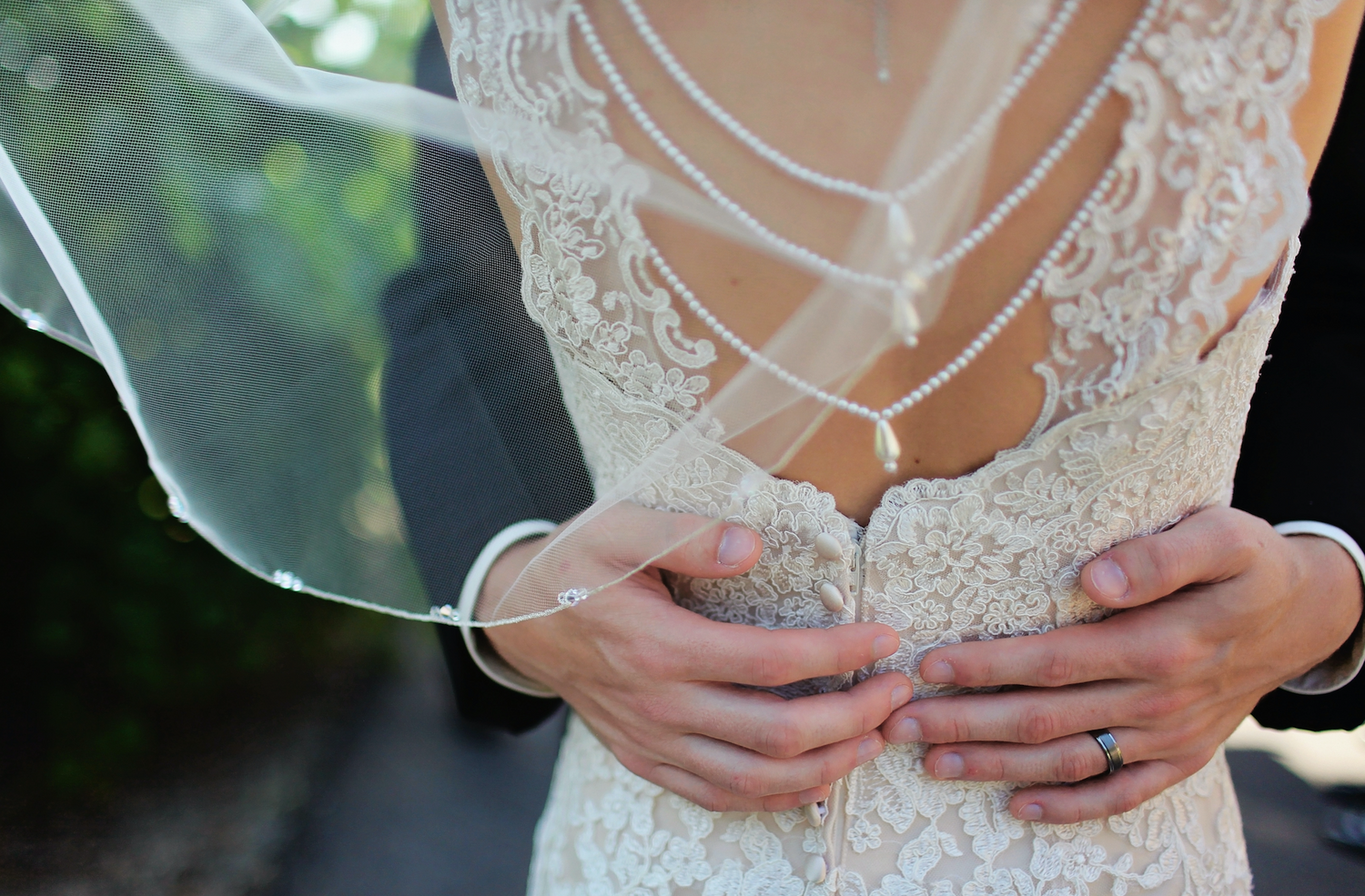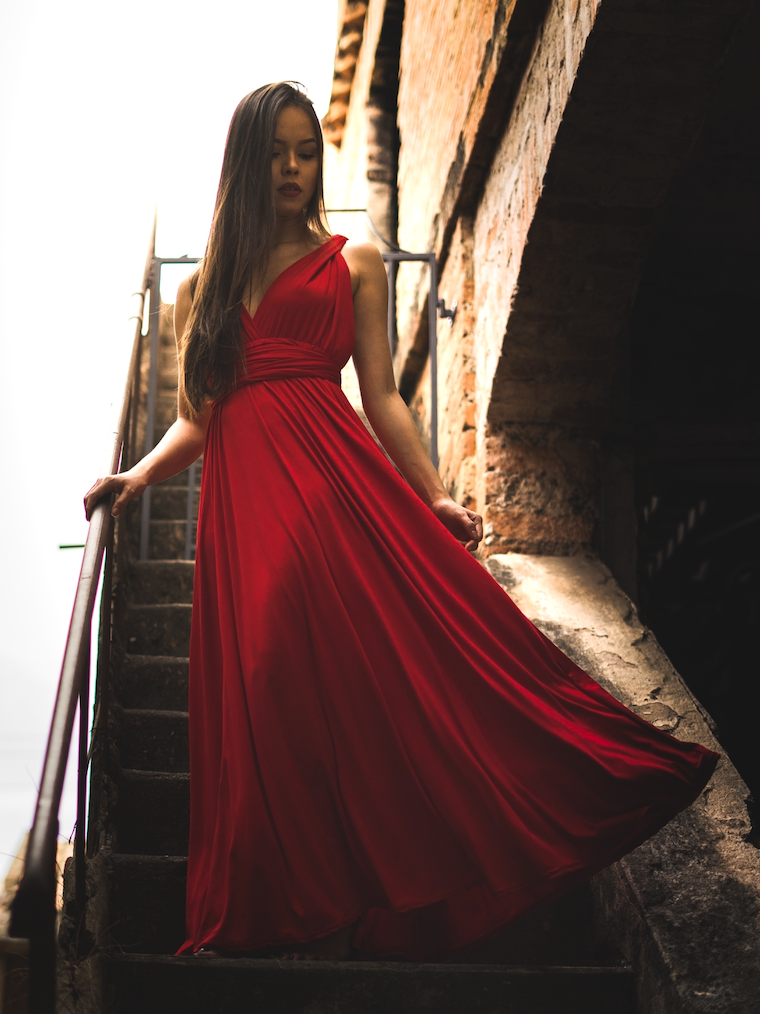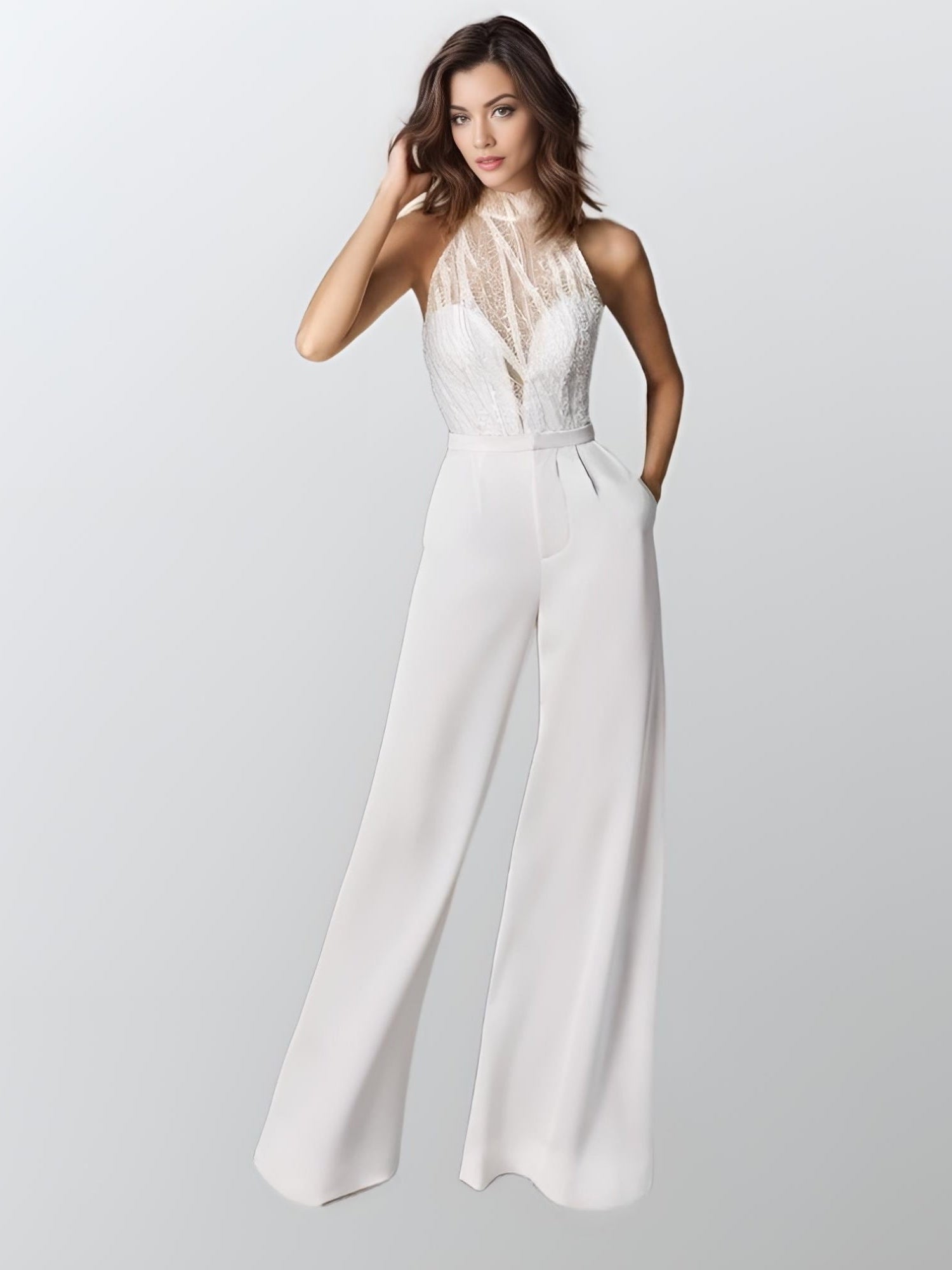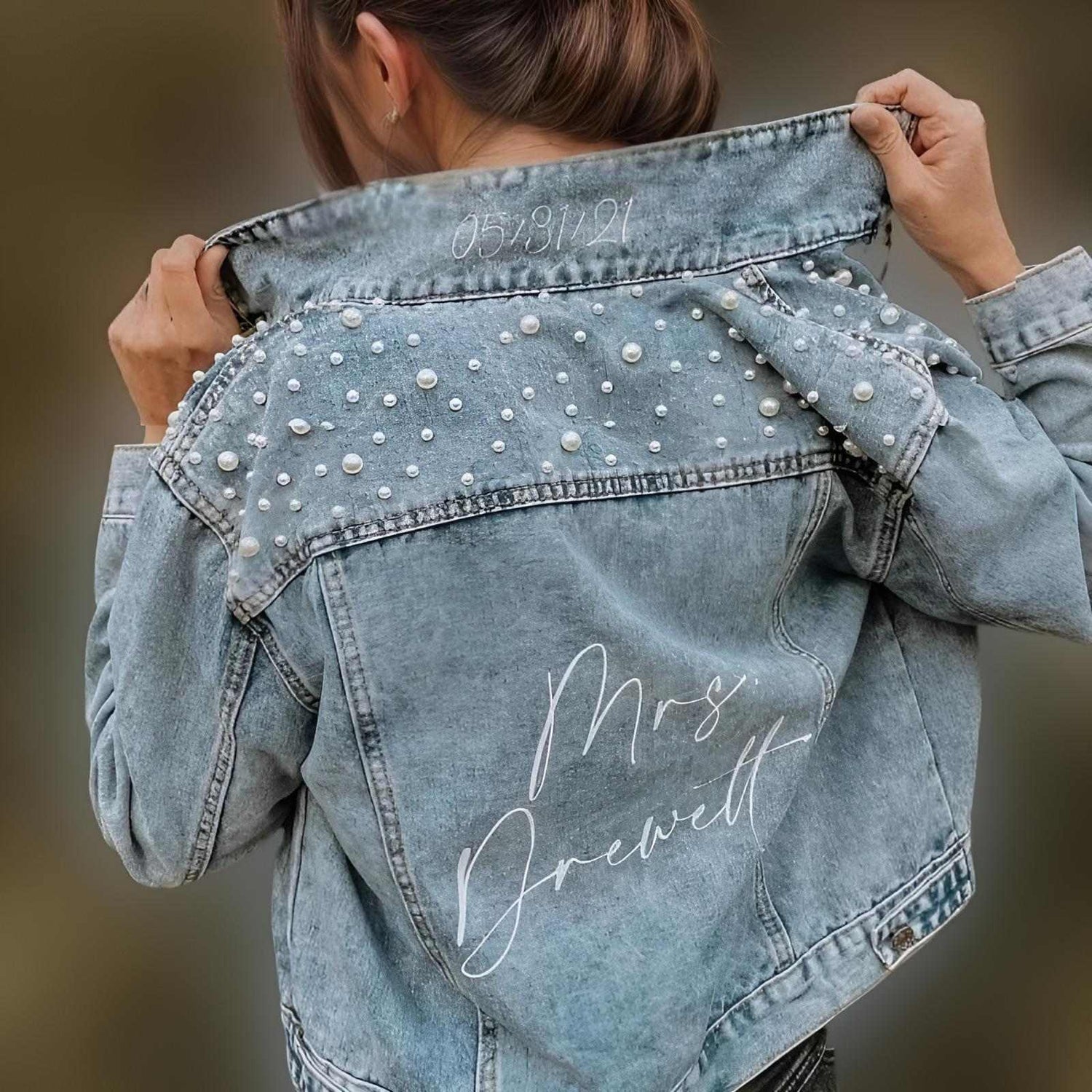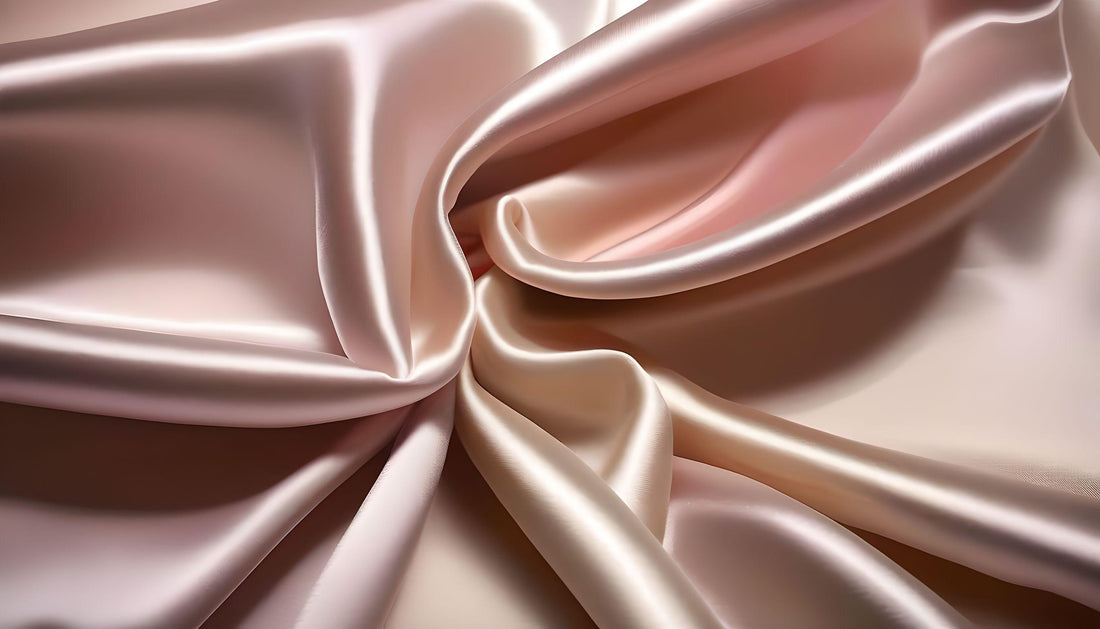
The Best Fabrics for Bridal and Formal Dresses: How They Look and Behave
Share
When it comes to picking the perfect fabric for your bridal or formal dress, you want to choose something that looks and behaves its best. That means no wrinkles, pulls, or stains! There are many different types of fabrics to choose from, but some are definitely better than others when it comes to looking and feeling your best on your big day. In this article, we'll go over the best fabrics for bridal and formal dresses and how they look and behave. We will also provide some tips on what to look for when choosing a fabric. Let's get started!
What Are the Best Fabrics for Bridal and Formal Dresses?
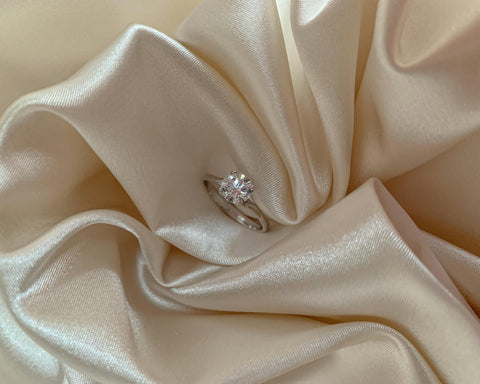
The best fabrics for bridal and formal dresses are those that are smooth, durable, and have a good weight to them. You want a fabric that will drape well and not wrinkle easily. Whether you choose a natural fiber like silk or a synthetic fiber like polyester, be sure to pick something that feels good against your skin and won't cause any irritation.
Here are some of the best fabrics for bridal and formal dresses:
1. Silk

This is a classic choice for bridal and formal wear. Silk is smooth, durable, and has a luxurious feel to it. It's also one of the most expensive fabrics, so be prepared to spend a bit more if you choose this option. This fabric is also known to stain easily, so be sure to have it professionally cleaned before your big day.
2. Satin
A very popular fabric for both bridal and formal gowns, satin has a beautiful lustrous finish and comes in a variety of weights. It drapes well and is figure-flattering but can be less forgiving than other fabrics if you have any lumps or bumps you'd rather not accentuate!

Traditional shiny satin, with its radiant and polished finish, remains a timeless classic in the fashion landscape. This smooth and glossy satin variant is renowned for its ability to catch and reflect light, adding a luxurious sheen to dresses. Often used in glamorous and sophisticated designs, shiny satin remains a symbol of refined elegance, making it a popular choice for creating show-stopping ensembles that exude glamour and style.
3. Crepe (Double FDY Fabric)

Elevate your formal and wedding attire with the exquisite allure of FDY fabric. Crafted from Fully Drawn Yarn, this fabric embodies a perfect union of strength and sophistication, making it an ideal choice for elegant occasions.
The smooth and sleek texture of FDY fabric adds a touch of luxury to formal dresses and wedding gowns, ensuring a refined and polished look. Its inherent strength provides structural integrity, allowing for gracefully flowing silhouettes and beautifully tailored designs. FDY fabric's luxurious feel enhances the overall comfort of your attire, allowing you to move with ease and confidence. Its drapability ensures that your dress falls elegantly, creating a stunning visual impact.
Step into the realm of modern innovation with double FDY fabric, that combines versatility with durability. Fully Drawn Yarn (FDY) is utilized to create a fabric that boasts maximum strength and resilience. This fabric is known for its smooth finish, luxurious feel, excellent drapability.
4. Tulle

Tulle is a light, airy fabric that is often used in bridal wear. It drapes beautifully and can be used to create delicate, feminine looks. However, tulle can be difficult to work with and is easily snagged or torn. You'll need to be careful when wearing this fabric. This is a good choice for a bride who wants a light, airy dress that is still elegant and sophisticated.
Tulle fabric, with its delicate and lightweight nature, has emerged as a quintessential choice in the realm of bridal and formal wear, seamlessly blending ethereal charm with structural finesse. Known for its fine netting, tulle is a versatile material that effortlessly drapes, creating a soft and romantic aesthetic.

One of its most popular applications is in tandem with lace, where the two join forces to craft enchanting and intricate designs. Tulle acts as the perfect canvas for lace embellishments, providing a sheer backdrop that allows the beauty of the lacework to shine through. This harmonious partnership between tulle and lace adds a touch of timeless elegance to wedding gowns, evening dresses, and various formal ensembles. The ethereal quality of tulle, coupled with the intricate detailing of lace, transforms garments into exquisite masterpieces, captivating hearts and leaving a lasting impression on those who admire the artistry of finely woven fabrics.
5. Chiffon

Chiffon is a light, airy fabric that is often used in formal wear. It drapes beautifully and floats away from the body, making it a good choice for hiding any imperfections. However, chiffon can be difficult to work with and is easily snagged or torn. You'll need to be careful when wearing this fabric.
Chiffon, a lightweight and sheer fabric, has become synonymous with grace and sophistication in the realm of fashion, particularly in the creation of elegant and ethereal dresses. Its airy texture and smooth drape make it a preferred choice for brides and those seeking a refined, flowing silhouette. Chiffon's versatility lies in its ability to effortlessly cascade, creating a soft and romantic movement that adds a touch of enchantment to any gown. Widely embraced for its gentle translucency, chiffon serves as a canvas for intricate detailing, making it an ideal choice for embellishments like lace overlays, beading, and embroidery. The fabric's delicate nature complements various dress styles, offering a graceful and flattering appearance. Whether used for layers in a flowing wedding gown or as the primary material for a formal evening dress, chiffon continues to be a symbol of timeless elegance, embodying the ethereal dreams of those who seek a garment that seamlessly combines comfort with beauty.
6. Polyester

Polyester is a synthetic fabric that is strong and durable. It is often used in formal wear because it doesn't wrinkle easily. Polyester is also less likely to fade than other fabrics. The key to looking good in polyester is to find the right weight and type of fabric. Heavier polyester fabrics can look cheap and tacky, so it's important to choose a fabric that has a bit of weight to it.
What Should You Look For When Choosing A Fabric?

When choosing a fabric for your bridal or formal dress, there are a few things you should keep in mind:
- Drape: How well does the fabric hang? You want a fabric that will drape nicely and not wrinkle easily.
- Texture: Is the fabric smooth or textured? You want a smooth fabric that will feel good against your skin.
- Weight: Is the fabric light or heavy? Heavier fabrics are usually more formal, while lighter fabrics are more casual.
- Pattern: Is the fabric printed or solid? Solid colors are usually more formal, while prints can be either formal or casual.
- Price: Fabric can range in price from very affordable to quite expensive. Choose something that fits your budget and is still a good quality fabric.
How Can You Make Sure Your Dress Looks and Behaves Its Best on Your Big Day?
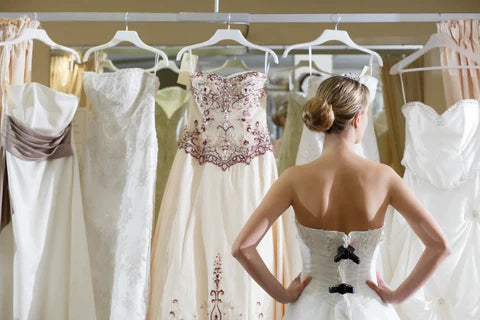
There are a few things you can do to make sure your dress looks and behaves its best on your big day:



Be careful when putting on and taking off your dress. Avoid pulling or stretching the fabric, as this can damage it. Also, be sure to remove any jewelry or accessories before sitting down, as they can snag or tear the fabric.
What Are The Benefits Of Using the Right Fabric For Your Dress?
Choosing the right fabric for your dress can have a profound impact on both the aesthetics and functionality of the garment. Here are several benefits of selecting the appropriate fabric for your dress:
Comfort: The right fabric ensures comfort, allowing you to wear the dress for extended periods without irritation or discomfort. Fabrics like cotton, jersey, or soft satins are known for their breathable and gentle qualities.
Fit and Drape: Different fabrics behave differently in terms of drape and fit. Choosing a fabric that complements the desired style of the dress enhances its overall appearance. For instance, flowy fabrics like chiffon create an ethereal look, while structured fabrics like taffeta can provide a more formal and defined silhouette.
Durability: High-quality fabrics contribute to the durability of the dress. Fabrics with good tensile strength and resistance to wear and tear ensure that your dress maintains its integrity over time, allowing for repeated use without significant signs of aging.
Appearance: The right fabric enhances the visual appeal of the dress. Satins and silks add a luxurious sheen, while lace and embellished fabrics contribute to intricate and elegant designs. The fabric plays a crucial role in how the dress reflects light and how patterns or textures are showcased.
Seasonal Appropriateness: The choice of fabric can also be influenced by the season or climate. Light and breathable fabrics like cotton and linen are suitable for warm weather, while heavier fabrics like velvet or wool are better suited for colder seasons.
Ease of Care: Consider the maintenance requirements of the fabric. Some fabrics are more resistant to wrinkles, stains, and easy to care for, making them practical choices for dresses that will see frequent use.
Versatility: Certain fabrics lend themselves well to a variety of dress styles. Versatile fabrics allow for creative designs, making it easier to achieve the desired look for different occasions.
Personal Preference: Ultimately, the right fabric aligns with your personal preferences. Whether you prioritize the feel, look, or specific properties of a fabric, choosing one that resonates with your taste ensures you feel confident and comfortable in your dress.
In summary, selecting the right fabric for your dress is a crucial decision that impacts not only how the dress looks but also how it feels and performs. Taking into account factors like comfort, aesthetics, durability, and seasonality will guide you towards choosing a fabric that enhances both the appearance and wearability of your dress.
There are many benefits to using the perfect fabric for your dress:
- It can make you feel more confident, it can help your dress to drape better, and it can make your dress more comfortable to wear.
- A good fabric can also make a big difference in how your dress looks. If you choose a high-quality fabric, it will often look better than a lower-quality fabric. This is because a high-quality fabric is often smoother and more durable.
- Finally, a good fabric can make it easier to care for your dress. If you choose a fabric that is easy to care for, you won't have to worry about it getting wrinkled or damaged.
What to do if you're not sure which fabric is right for you?
If you're not sure which fabric is right for you, it's always a good idea to consult with a professional. A seamstress or tailor can help you choose the right fabric for your dress based on your specific needs and preferences. They can also help you determine how much fabric you'll need and what kind of care is required for that particular fabric.
With their help, you can be sure to choose the best fabric for your bridal or formal dress!
Final Words
So, what are the best fabrics for bridal and formal dresses? Here at Lula Bridal, we've rounded up some of the most popular and flattering fabrics for you to choose from. Each fabric has its own benefits – like being wrinkle-resistant or having a luxurious look and feel – so it's important to consider what you want your dress to do for you before making your final decision. If you need any help narrowing down your options, our team is more than happy to provide expert advice. And don't forget: once you've chosen your perfect fabric, be sure to take care of it so that your dress looks amazing on the big day!
